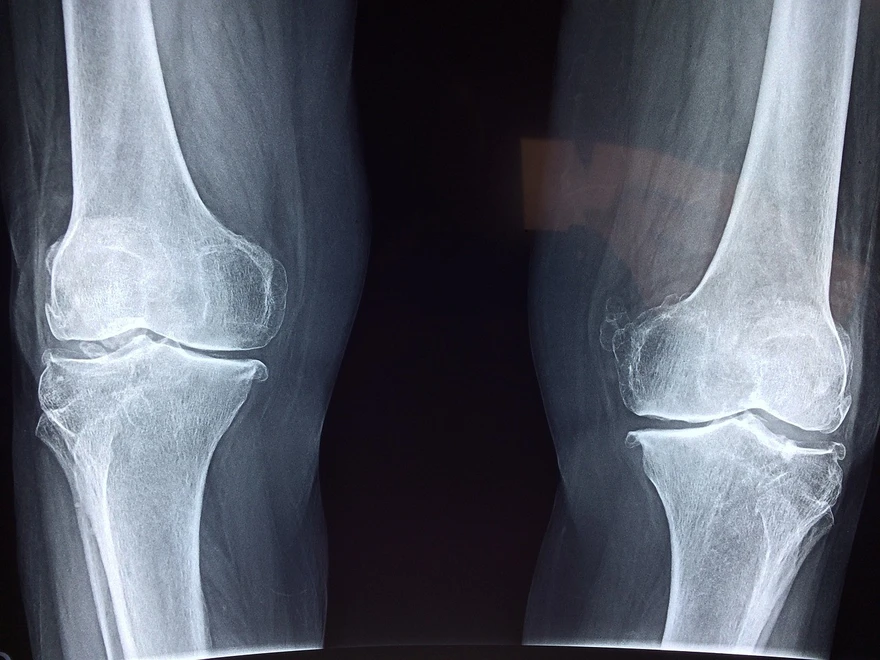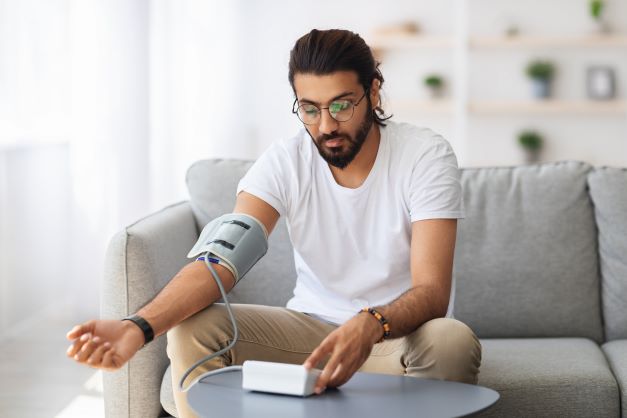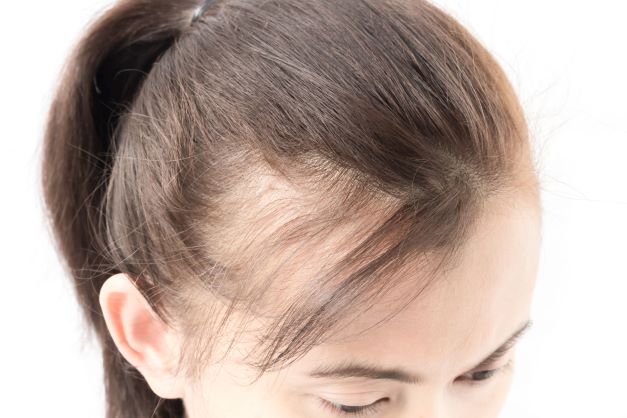Preventive Healthcare
MRCP Test: Why It’s Done & What to Expect

Table of Contents
- What is an MRCP Test?
- Why is MRCP Performed?
- How to Prepare for an MRCP Test?
- What's the Purpose of the MRCP Test?
- MRCP Test Procedure
- Understanding MRCP Results
- Why Do You Need The MRCP Test?
- Benefits of MRCP Test
- Risks of MRCP Test
- Are There Any MRCP Test Side-Effects?
- What are the Limitations of the MRCP Test?
- MRCP Scans Vs ERCP Scans
- MRCP Test Price
- Factors Affecting the MRCP Test Cost
- Conclusion
- FAQs
Worried about an upcoming MRCP test or wondering why your doctor recommended it? You’re not the only one with questions. Magnetic Resonance Cholangiopancreatography (MRCP) is a safe and painless imaging test used to look at your pancreas, liver, gallbladder, and bile ducts. It helps doctors understand what might be causing symptoms like abdominal pain or jaundice.
Knowing what to expect before, during, and after the scan can ease your concerns and help you feel more prepared. Here’s what you need to know about the MRCP test.
What is an MRCP Test?
An MRCP (Magnetic Resonance Cholangiopancreatography) test is a non-invasive imaging test that uses magnetic fields and radio waves to create detailed images of your abdomen. It focuses on the liver, gallbladder, bile ducts, pancreas, and pancreatic ducts. The scan is completely painless and doesn’t use radiation. Instead, it uses safe radiofrequency waves and powerful magnets to gather information.
The MRCP scan is often used as an alternative to more invasive procedures, such as endoscopy, especially when doctors need a clearer picture of your internal organs.
Why is MRCP Performed?
Your doctor may suggest an MRCP scan if you are experiencing unexplained symptoms related to your abdomen or digestive system. It is commonly used for diagnosis, monitoring, and planning treatment.
- Helps detect gallstones or blockages in the bile ducts that could be causing pain or jaundice.
- Identifies inflammation in the pancreas or gallbladder, helping doctors manage pancreatitis or cholecystitis.
- Assists in spotting tumours or signs of cancer in the bile ducts or pancreas.
- Checks for congenital abnormalities in the ducts that could be affecting digestion or causing chronic symptoms.
- Evaluates complications following abdominal surgery or other treatments involving bile or pancreatic ducts.
How to Prepare for an MRCP Test?
Preparing for an MRCP test is simple but important. Following your doctor’s guidance will ensure the results are clear and accurate. Most preparation steps focus on ensuring your abdomen is still and clear of any obstructions during imaging.
- Fasting: You will likely be asked not to eat or drink anything for at least four to six hours before the scan. This helps reduce fluid and movement in your abdomen.
- Clothing: Wear comfortable clothes without metal fastenings. You may be asked to change into a gown to avoid any interference from zippers, buttons, or jewellery.
- Remove metal objects: Leave jewellery, hairpins, dentures, and electronic devices outside the scanning room, as metal can disrupt the MRCP procedure.
- Inform your doctor: Let your healthcare team know if you have implants such as pacemakers, cochlear devices, or metal plates. Some implants may not be compatible with MRI machines.
- Claustrophobia: If you feel nervous in enclosed spaces, talk to your doctor. A mild sedative may be recommended to help you relax.
- Medications: Continue taking your usual medicines unless your doctor tells you otherwise. Some supplements or non-prescription drugs may be paused temporarily.
What's the Purpose of the MRCP Test?
The main goal of an MRCP scan is to diagnose and monitor conditions affecting your abdominal organs, especially the bile and pancreatic ducts. It provides high-quality images to guide your doctor in making accurate decisions.
- Diagnoses blockages or strictures in the bile ducts or pancreatic ducts, which can cause pain or digestive problems.
- Detects stones, tumours, or cysts, even those that are not visible on ultrasound or other scans.
- Assesses chronic conditions such as pancreatitis or liver disease by checking for structural changes over time.
- Avoids invasive procedures when imaging alone is sufficient for diagnosis, offering a safer alternative for many patients.
MRCP Test Procedure
If you're scheduled for an MRCP scan, knowing what happens during the scan can help you feel more at ease. It’s a straightforward process and doesn’t involve any needles unless contrast dye is required.
- Arrival and check-in: When you arrive, you'll be guided through a safety checklist to make sure there are no metal objects or implants that may interfere with the scan.
- Changing clothes: You’ll be asked to remove jewellery and may be provided with a hospital gown for comfort and safety.
- Lying down for the scan: You’ll lie flat on a table that slides into the MRI machine. Devices called coils may be placed around your abdomen to help capture clear images.
- Ear protection: The machine can make loud noises, so you’ll be offered headphones or earplugs to minimise discomfort.
- Staying still: You’ll need to lie very still, and at times, you may be asked to hold your breath for a few seconds. This helps avoid blurry images.
- Use of contrast dye: In some cases, a contrast agent (usually gadolinium) is injected to highlight specific areas. You may feel a cool sensation during this injection.
- Communication: Though the technician will be in another room, they will see, hear, and talk to you throughout the scan using an intercom.
- Scan duration: The scan usually takes around 15 to 20 minutes. If combined with a full abdominal MRI, it may last up to 45 minutes.
- After the scan: There is usually no recovery time unless sedation was used. You can resume your normal routine right after.
Understanding MRCP Results
After your MRCP test, the images are reviewed by a radiologist who prepares a report for your doctor. These results help determine the next steps in your care.
- Timeframe: Results are typically ready within a few days. Your doctor will contact you to explain them.
- What results show: The report will indicate if there are any signs of blockages, stones, inflammation, or other abnormalities.
- Next steps: Depending on the findings, your doctor may recommend further tests, treatment, or monitoring. In many cases, the scan alone is enough to plan your care.
Why Do You Need The MRCP Test?
You might be advised to get an MRCP scan if you have symptoms or a medical history that suggests issues with your digestive system. It offers clarity when other tests aren’t conclusive.
- Abdominal pain: Especially if it’s in the upper abdomen or persists without clear cause.
- Signs of liver or gallbladder issues: Such as jaundice, dark urine, or light-coloured stools.
- Recurring digestive symptoms: Including nausea, vomiting, or bloating that does not improve.
- Follow-up after pancreatitis: To assess damage or scarring of the ducts or pancreas.
- Family or personal history: If you’ve had gallstones, liver disease, or pancreatitis before, an MRCP scan can help monitor your condition.
Benefits of MRCP Test
The MRCP test provides several advantages over other imaging techniques and procedures. It’s a preferred choice in many cases because of its safety and accuracy.
- Non-invasive and painless: No cuts, scopes, or anaesthesia are involved, making it easier to undergo and recover from.
- No radiation exposure: It uses magnetic fields and radio waves, making it safe for most people, including children and pregnant women in later stages.
- Detailed imaging: It creates high-resolution images of soft tissues and ducts, helping in accurate diagnosis and treatment planning.
- Reduces need for invasive procedures: In many cases, it can replace endoscopy or exploratory surgery when only imaging is needed.
- Quick and safe: The MRCP procedure is relatively short, and side effects are rare.
- Helpful in ongoing care: Doctors often use it to monitor chronic conditions and assess treatment progress over time.
Risks of MRCP Test
An MRCP scan is considered very safe. However, like any medical test, there are a few things to be aware of. These risks are rare and manageable with proper precautions.
- Claustrophobia or discomfort: Some people may feel uneasy inside the MRI machine. Let your doctor know if you’re nervous — a sedative can help.
- Allergy to contrast dye: Though uncommon, some individuals may react to gadolinium-based contrast. Symptoms are usually mild, such as itching or nausea.
- Implants and metal devices: People with certain implants like pacemakers may not be able to have an MRCP scan unless the device is MRI-safe.
- Kidney concerns: Gadolinium may be risky for people with severe kidney disease, so your kidney function will be checked beforehand.
- Temporary side effects: Some people report a metallic taste in their mouth or a warm sensation after contrast dye. These effects usually fade quickly.
Are There Any MRCP Test Side-Effects?
For most people, the MRCP scan does not cause any side-effects. It’s a gentle test, but a few individuals may feel mild symptoms during or after the scan.
- Mild discomfort from lying still: You may experience some stiffness or mild pain in your back or hips if you have to remain still for a long time.
- Reactions to contrast dye: These are rare and usually mild, like nausea, dizziness, or warmth at the injection site.
- Claustrophobia: If you’re anxious in tight spaces, speak with your doctor beforehand to discuss options.
- Metal-related concerns: If you unknowingly have metal in your body, it may affect scan quality or cause minor irritation.
- Headphones or loud sounds: The scanner can be noisy. Headphones help, but some people find the sound uncomfortable.
What are the Limitations of the MRCP Test?
While the MRCP scan is highly useful, it has a few limitations depending on your individual health or the technical setup.
- Image quality: If you move during the scan or have metal implants, the images may not be clear enough for diagnosis.
- Not suitable for everyone: Some implanted devices may interfere with MRI. Always inform your care provider beforehand.
- Not therapeutic: Unlike ERCP, the MRCP scan is diagnostic only. It can’t treat or take tissue samples during the scan.
- Obesity or body size: Some patients may not comfortably fit in standard MRI machines, although open MRI options are available in some centres.
- Scan timing: An irregular heartbeat or certain motion disorders may affect scan quality.
- Contrast use: Though rare, gadolinium is avoided during early pregnancy unless absolutely necessary.
MRCP Scans Vs ERCP Scans
Both MRCP and ERCP are used to evaluate the bile and pancreatic ducts. However, they differ in approach and purpose. Understanding the difference between MRCP vs. ERCP can help you make informed decisions.
|
Feature |
MRCP Scan |
ERCP Scan |
|
Type |
Non-invasive MRI imaging |
Invasive endoscopic procedure |
|
Radiation |
No radiation involved |
Uses X-rays and contrast dye |
|
Anaesthesia |
Not needed (unless sedative is required) |
Requires sedation or anaesthesia |
|
Use |
Diagnosis only |
Diagnosis + treatment (e.g., stents, biopsies) |
|
Risk level |
Low risk of complications |
Higher risk including pancreatitis, bleeding |
|
Recovery time |
Immediate |
May need recovery and observation post-procedure |
MRCP Test Price
The MRCP test cost varies depending on where you have it done and whether contrast dye is used. Generally, the price ranges from ₹3,000 to ₹8,000. Factors like the type of hospital, equipment used, and consultation fees can affect the final price. Private centres may charge more, especially if advanced machines or quick reporting is offered.
If you have health insurance, check if it covers imaging tests like the MRCP scan, as this could significantly reduce your out-of-pocket expenses.
Factors Affecting the MRCP Test Cost
The MRCP test cost isn’t fixed and may vary for several reasons. Knowing what contributes to the pricing can help you plan better.
- Location of the facility: Urban areas with advanced diagnostic centres may charge more than smaller towns.
- Type of facility: Costs differ between government hospitals, private hospitals, and standalone diagnostic centres.
- Use of contrast dye: If a contrast agent is required, this adds to the total price of the scan.
- Radiologist’s expertise: Highly experienced radiologists may command higher fees for reviewing the scan.
- Additional services: Consultation, follow-up visits, and digital report access may increase the overall cost.
- Machine quality: Newer, high-resolution MRI machines tend to be costlier but produce clearer results.
- Health insurance: If your plan includes diagnostic scans, it may cover part or all of the MRCP scan cost.
- Discounts or packages: Some centres offer bundled packages or discounts that can lower the cost significantly.
Conclusion
The MRCP scan is a safe and reliable test that helps doctors identify problems in your liver, pancreas, and bile ducts without invasive procedures. Understanding why it's done and what to expect can ease your concerns and help you prepare.
For trusted diagnostic services, expert care, and accurate reporting, consider getting your scan done with Metropolis Healthcare, known for its quality standards and nationwide presence.
FAQs
Q1. Is MRCP painful?
No, the MRCP scan is painless. You may feel slight discomfort from lying still during the scan.
Q2. How long does the MRCP test take?
The MRCP scan usually takes 15–20 minutes, but may extend to 45 minutes with abdominal imaging included.
Q3. Can MRCP detect all types of gallstones?
Yes, the MRCP scan can detect most gallstones, especially those located in the bile ducts and gallbladder.
Q4. Is MRCP safe during pregnancy?
The MRCP scan is generally safe during later pregnancy, but avoided in the first trimester unless medically necessary.
Q5. What organs can be observed in the MRCP test?
The MRCP scan shows your liver, gallbladder, bile ducts, pancreas, and pancreatic duct in detailed cross-sectional images.
Q6. How accurate is a MRCP test?
The MRCP scan has an accuracy rate between 89%–94% with a high sensitivity for detecting biliary and pancreatic conditions.
Q7. What is the difference between MRCP test and the MRI scan?
The MRCP scan is a type of MRI focused specifically on visualising bile and pancreatic ducts in your abdomen.
Q8. What is the MRCP test cost?
The MRCP test cost typically ranges from ₹3,000 to ₹8,000, depending on location, centre, and contrast usage.
Q9. What’s the difference between an MRCP and an MRI?
The MRCP scan is a specialised MRI focused on bile and pancreatic ducts, while MRI images various body tissues broadly.
Q10. What are the advantages of the MRCP and ERCP scans?
MRCP is non-invasive and safer; ERCP allows treatment like stent placement but carries higher procedural risk.



1744887454.webp)






































